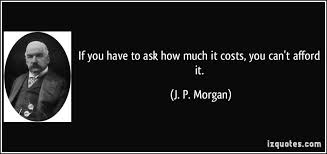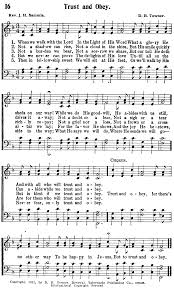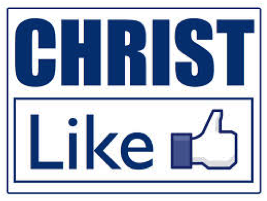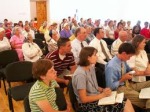 Why Should/Shouldn’t My Church Embrace Change? Part XX
Why Should/Shouldn’t My Church Embrace Change? Part XX
To understand the five fold relationally, one must understand its purpose and mission. Is the five fold to be offices to govern the church or are they passions desires and points of view of believers in Jesus? Let’s look at their purpose and mission.
To Equip The Saints…..
“….. for the equipping of the saints for the work of service, to the building up of the body of Christ;” (Ephesians 4:12)
One purpose for the five fold is “for the equipping of the saints”. If it were for the structuring of the church, it would read “for the equipping of the staff,” but it doesn’t say that. It is not a “professional development” tool.
One definition for “equip” is “to prepare mentally for a particular situation or task.” For what situation are we preparing our believers in Christ? For evangelism? It takes a special mentality to infiltrate a hostile world that rejects Jesus and share the gospel. What “necessary supplies for a particular purpose” do we, as a Church, “equip” them with? One of the greatest tools we can give them is to “release” and “send” them with our blessing.
 The organizational church tried to keep William Booth in his pulpit, not in the streets, and would not release him to evangelize. He resigned, went for it alone, and founded the Salvation Army. Unfortunately, many believers with an evangelistic passion find themselves alone because the church won’t bless their “independent” endeavors.
The organizational church tried to keep William Booth in his pulpit, not in the streets, and would not release him to evangelize. He resigned, went for it alone, and founded the Salvation Army. Unfortunately, many believers with an evangelistic passion find themselves alone because the church won’t bless their “independent” endeavors.
Evangelists do not have to be alone when embracing the five fold because they have others supporting and encouraging them. A believer with a shepherd’s heart, standing with him, he can nurture and care for any new convert. Another believer with a passion to teach could share the Logos Word and help make it a Rhema Word in a new convert’s life. A prophetic believer would seek the voice of the Holy Spirit for guidance. A believer with apostolic vision would network this new convert with others to strengthen his walk. What greater gift can we give an evangelist than release him to, “Go do your thing; we got your back covered”?
A believer with an evangelistic passion often gets burned out and discouraged if they don’t have the support of their local church. But in the five fold an evangelist has a shepherd to nurture, a teacher to instruct, a prophet to draw near to God, and an apostle to “see over” what the Holy Spirit is doing in his life. That is equipping!
If we would approach equipping through the Lamad method of experiencing a faith journey with a brother or sister rather then academically instructing them, we would be more effective in discipleship. Am I willing to “lay down my life for my brethren” by literally being beside him in a 24/7 relationship? Jesus did it! If so, this five fold will work. If not, I will be inclined to outsource it to a professional, which is our current structure. It is all about intimate, sacrificial relationships!
 The same is true with the other four passions. Equipping means standing by each other while “laying down” your agendas, passions, and opinions “to serve” one another!
The same is true with the other four passions. Equipping means standing by each other while “laying down” your agendas, passions, and opinions “to serve” one another!
As a church we have no idea what equipping means until we “experience” it! When we “invest” in one another, believers to believers, “equipping” will flow naturally as it did in the first century.




































































